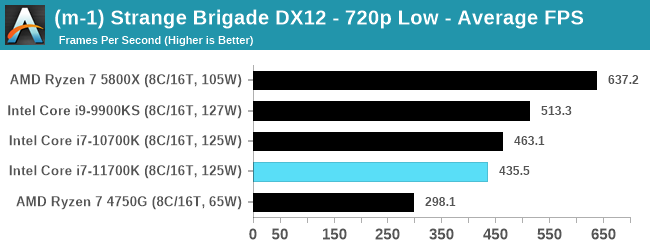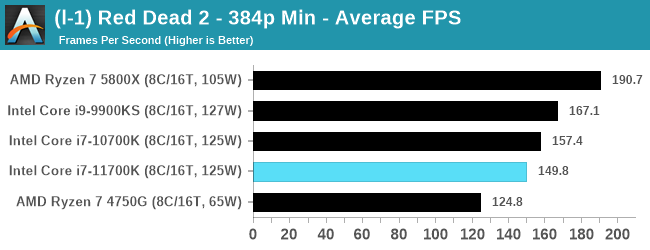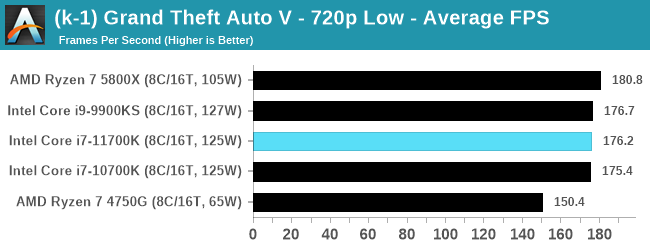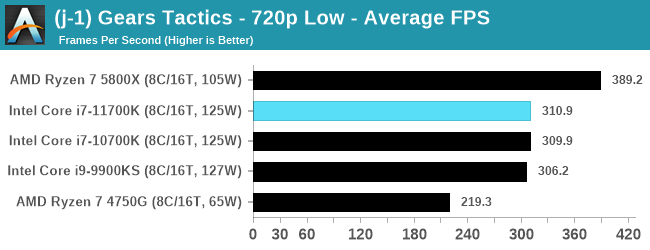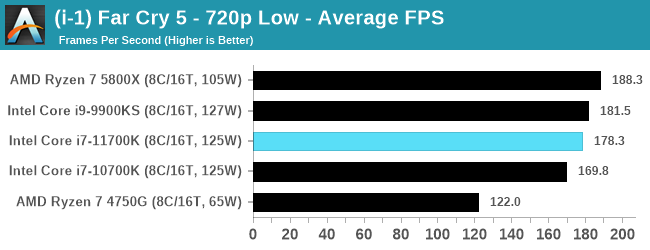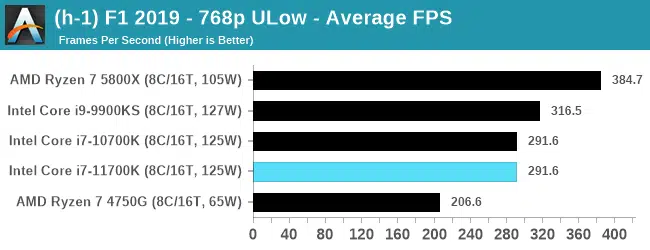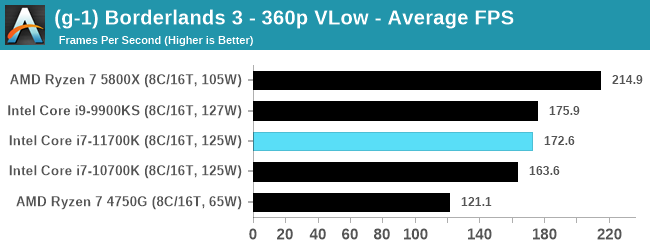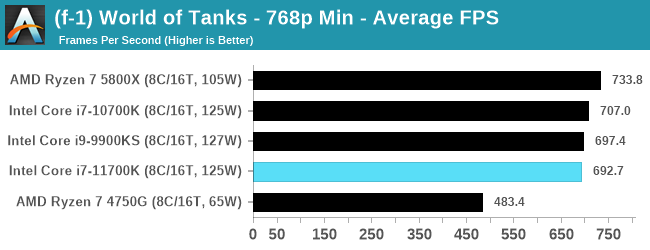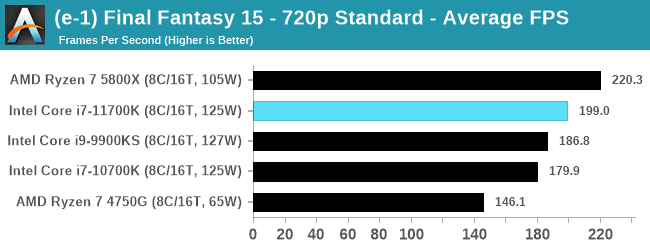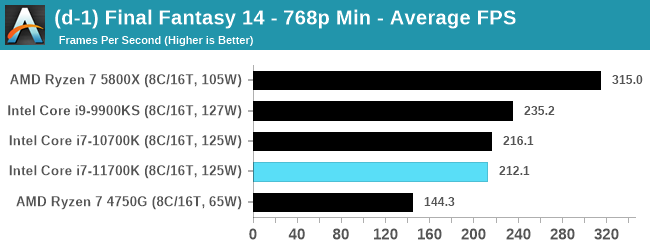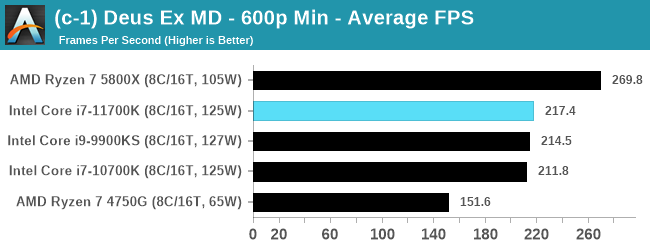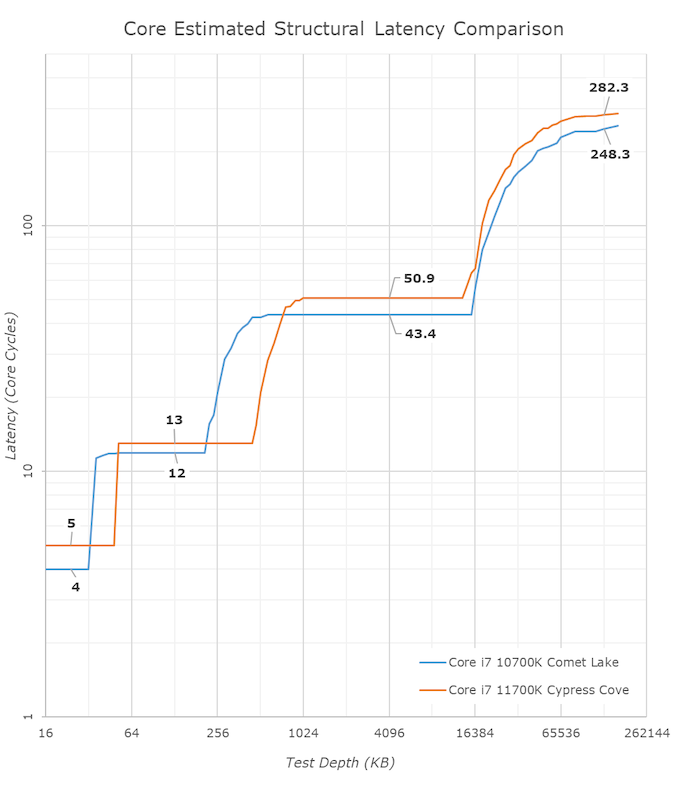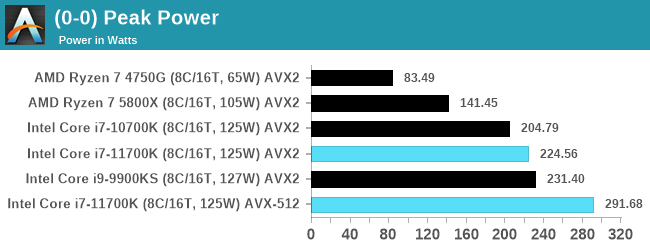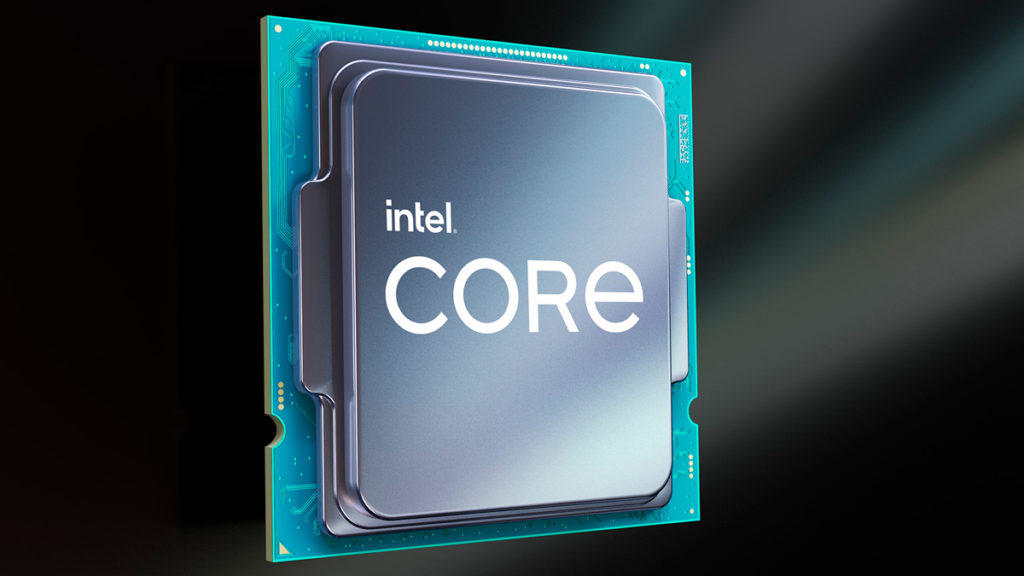
Intel’s upcoming lineup of 11th Gen Core i7 and Core i9 desktop processors may have a tough time keeping up with AMD’s Zen 3-based Ryzen counterparts in the gaming department. This is according to our friends at AnandTech, which is one of the first major publications to share benchmarks demonstrating the performance of one of its higher-tiered Rocket Lake-S processors, the Core i7-11700K. Unfortunately for Intel, the editors found that its 8C/16T CPU lagged behind the Ryzen 7 5800X in a variety of modern titles in CPU-bound tests despite a proven 19 percent improvement in IPC.
“Users looking at our gaming results will undoubtedly be disappointed,” AnandTech’s Ian Cutress stated. “The improvements Intel has made to its processor seem to do very little in our gaming tests, and in a lot of cases, we see performance regressions rather than improvements.”
“[…] Rocket Lake has some regressions in core-to-core performance and its memory latency profile,” Cutress goes on to explain, theorizing that the problem may have to do with increased levels of latency in the chip’s L3 cache. “[…] the biggest change is that the L3 latency is now ~51 cycles, rather than ~43 cycles. This is probably where a lot of the core-to-core latency performance drop comes in, as we are now seeing latencies of 28-30 nanoseconds on most cores, rather than 18-24 as observed on Comet Lake.”
“The much slower L3 in raw cycles is contrary to what we saw on the Sunny Cove version of this core, and with no obvious answer as to why this might be the case, but it does lend itself a lot as to the gaming performance. Intel may at a later date disclose the exact reasons for this structural change.”
Cutress’ testing also confirmed that Intel’s Core i7-11700K is an extremely power-hungry processor. This was quite apparent in an AVX-512 test, whereby the Rocket Lake-S chip peaked at a scarily high 291.68 watts.
“This was during an all-core AVX-512 workload, automatically set at 4.6 GHz, and the CPU hit 104ºC momentarily,” Cutress clarified. “There’s no indication that the frequency reduced when hitting this temperature, and our cooler is easily sufficient for the thermal load, which means that on some level we might be hitting the thermal density limits of wide mathematics processing on Intel’s 14nm.”

